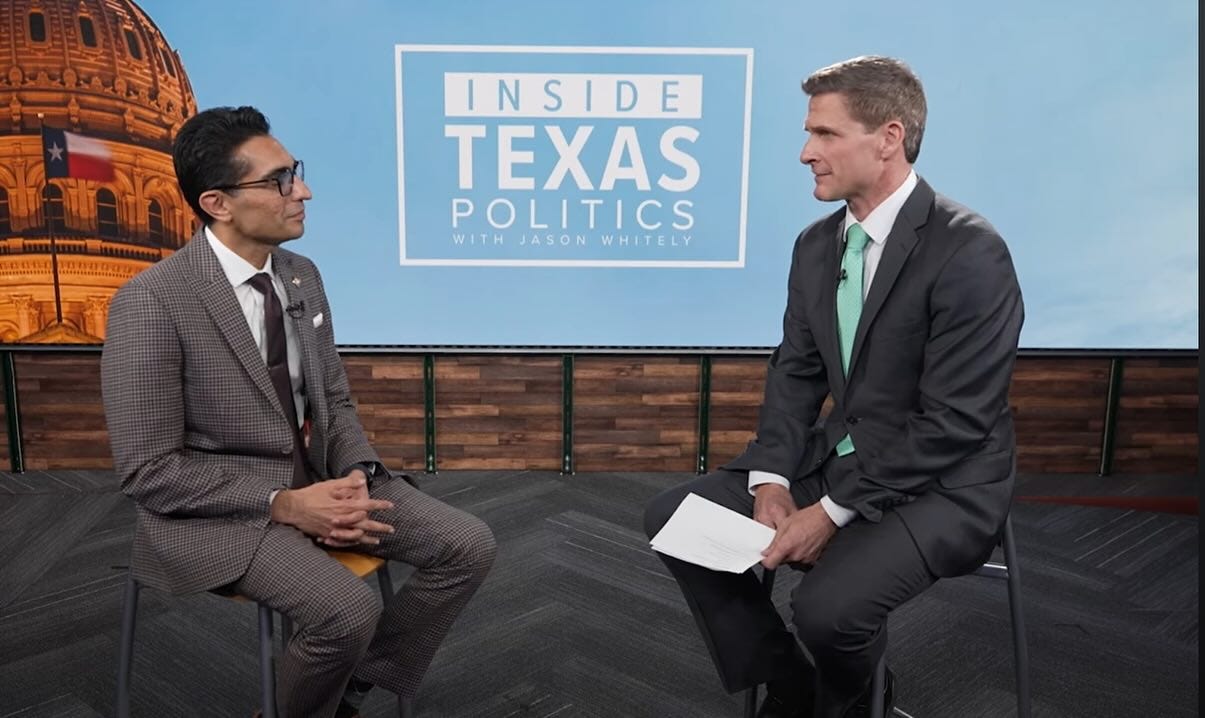Muslim Lawmaker Faces Racist Attacks as Islamophobia Hits Record High in Texas
Muslim State Representative Salman Bhojani Becomes Target of Anti-Islamic Harassment Amid Surging National Hate Incidents
The Council on American-Islamic Relations (CAIR) Texas has condemned a series of racist and anti-Muslim attacks targeting Texas State Representative Salman Bhojani, demanding accountability from state leaders as discrimination against Muslim Americans reaches record-breaking levels nationwide. The incident highlights a disturbing pattern of Islamophobia that civil rights organizations say has intensified dramatically since October 2023.
"Vigorous public debate, a hallmark of healthy democracy, was replaced by crackdowns on people expressing politically disfavored viewpoints in 2024."
CAIR Texas and CAIR Action Texas issued a joint statement on August 13, 2025, calling on Texas legislative leadership to hold colleagues accountable for what they described as targeted harassment of the state's first Muslim and South Asian representative.
Rising Tide of Anti-Muslim Sentiment Sweeps Nation
The attacks on Representative Bhojani occur against a backdrop of unprecedented anti-Muslim discrimination across the United States. According to CAIR's 2025 Civil Rights Report, the organization received 8,658 complaints of anti-Muslim incidents in 2024—the highest number recorded since tracking began in 1996.
This represents a 7.4% increase from the 8,061 complaints received in 2023, with the majority of incidents—15.4%—involving workplace discrimination. Immigration and asylum issues accounted for 14.8% of complaints, while education-related discrimination represented 9.8% and hate crimes comprised 7.5% of the total.
Alarming Statistics Paint Troubling Picture
The FBI's preliminary data from the Crime and Justice Research Alliance indicates an 18% rise in anti-Muslim hate crimes reported to law enforcement across 28 U.S. cities in 2024. However, experts warn these figures likely underrepresent the true scope of the problem, as not all law enforcement agencies are required to submit hate crime data to the federal government.
CAIR Research and Advocacy Director Corey Saylor emphasized that the reported incidents represent only cases directly reported to the organization, suggesting "the actual number of incidents nationwide is likely higher".
Pioneer Politician Becomes Target
Representative Salman Bhojani's journey from immigrant convenience store cashier to groundbreaking legislator embodies the American dream—and now makes him a target for hate. Born in Pakistan in 1980, Bhojani immigrated to Montreal at age 10 before moving to Texas in 1999.
Working three minimum-wage jobs to support his family, Bhojani climbed from convenience store cashier to successful business owner and attorney. His educational achievements include degrees from the University of Texas at Dallas, Southern Methodist University's Dedman School of Law, and Oxford University.
Breaking Barriers in Texas Politics
In 2018, Bhojani made history as the first person of color elected to the Euless City Council, later serving as Mayor Pro Tem. His 2022 election to the Texas House of Representatives marked another milestone, making him one of the first Muslims and the first South Asian ever elected to the Texas Legislature.
Representing District 92, Bhojani serves as Vice Chair of the Delivery of Government Efficiency Committee and sits on multiple legislative panels, including the Trade, Workforce, and Economic Development Committee. His successful 2024 re-election campaign demonstrates continued community support despite facing discriminatory attacks.
Workplace and Educational Targeting Surge
The pattern of discrimination extends far beyond political harassment, with workplace and educational institutions becoming primary battlegrounds for anti-Muslim bias. CAIR's data shows that employment discrimination complaints reached 15.4% of all reported incidents, while education-related complaints comprised nearly 10%.
"For the second consecutive year, the US-backed Gaza genocide has sparked a wave of Islamophobia in the United States."
Civil rights advocates point to the October 7, 2023, Hamas attack and subsequent Israel-Gaza conflict as a catalyst for increased anti-Muslim sentiment. CAIR noted that "viewpoint discrimination against those speaking out against genocide and apartheid was a key factor in many cases".
Violent Incidents Shock Communities
The discrimination has escalated beyond verbal harassment to violent attacks. Recent cases include a Texas woman accused of attempting to drown a Muslim child at a public pool, an Illinois woman who allegedly assaulted a man wearing a "Palestine" sweatshirt, and a Florida man sentenced to over three years in prison for ripping off a postal worker's hijab and calling her a terrorist.
Most tragically, an Illinois jury convicted a man of murder and hate crime charges for fatally stabbing a six-year-old Palestinian American boy, Wadea Al-Fayoume. This case has become emblematic of the violence facing Muslim and Arab communities.
California Leads National Complaint Statistics
While Texas grapples with attacks on its Muslim representative, California recorded the highest number of anti-Muslim discrimination complaints nationwide. CAIR's California offices received 1,004 civil rights complaints in 2024, compared to 756 in 2023—a significant increase that mirrors national trends.
The geographic distribution of complaints reveals that anti-Muslim sentiment spans the entire country, affecting both liberal and conservative states. This widespread nature suggests the problem transcends traditional political boundaries and requires comprehensive federal intervention.
Legislative Response and Accountability Demands
CAIR Texas's demand for accountability from state legislative leaders represents a test of institutional commitment to protecting minority lawmakers. The organization's call for action comes as Muslim Americans increasingly participate in democratic processes, with candidates like Bhojani breaking barriers across the country.
The response from Texas leadership to these demands will likely set precedents for how states handle discriminatory attacks against minority elected officials. Political analysts suggest that failure to address such incidents could discourage Muslim Americans and other minorities from seeking public office.



